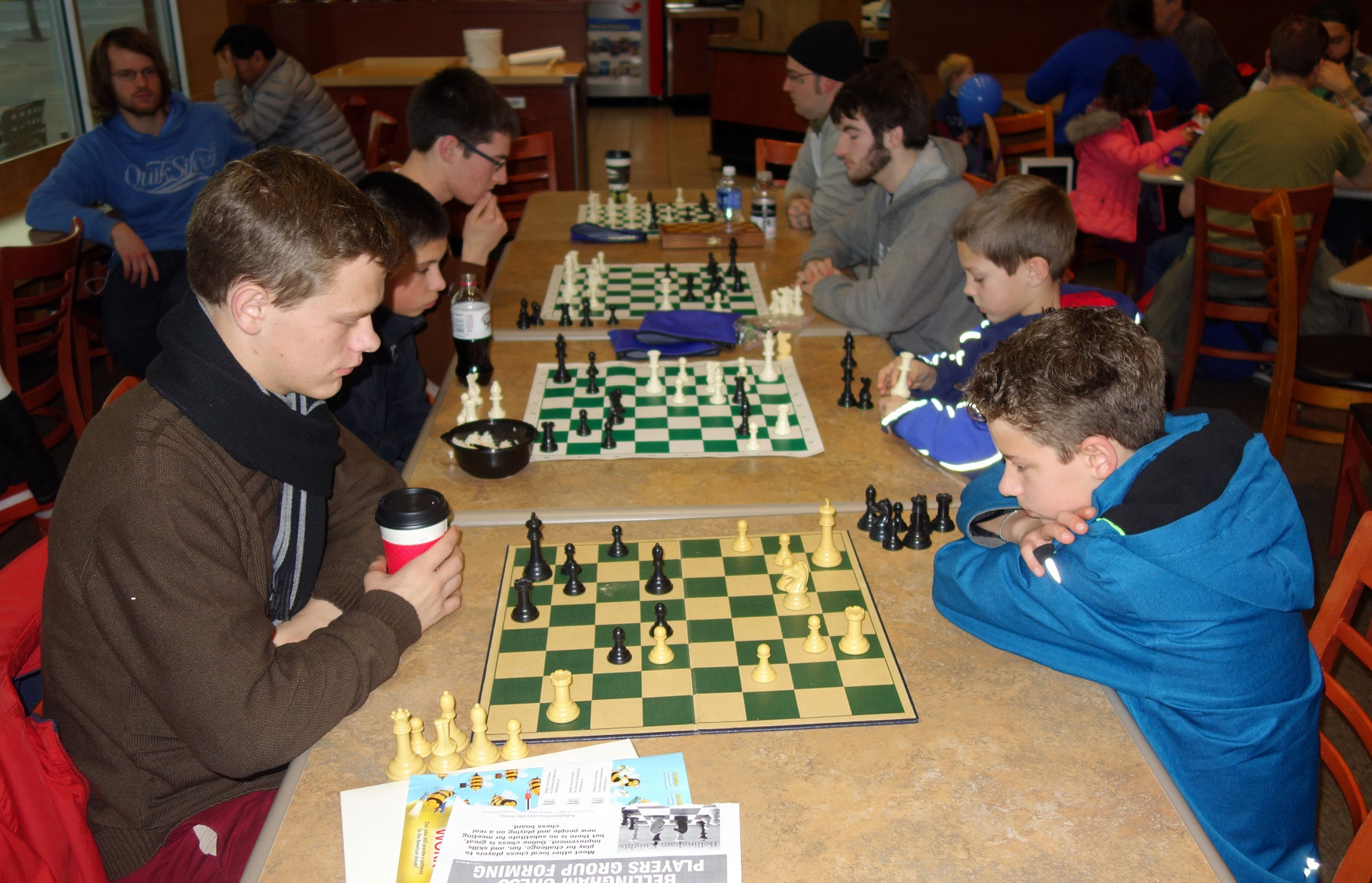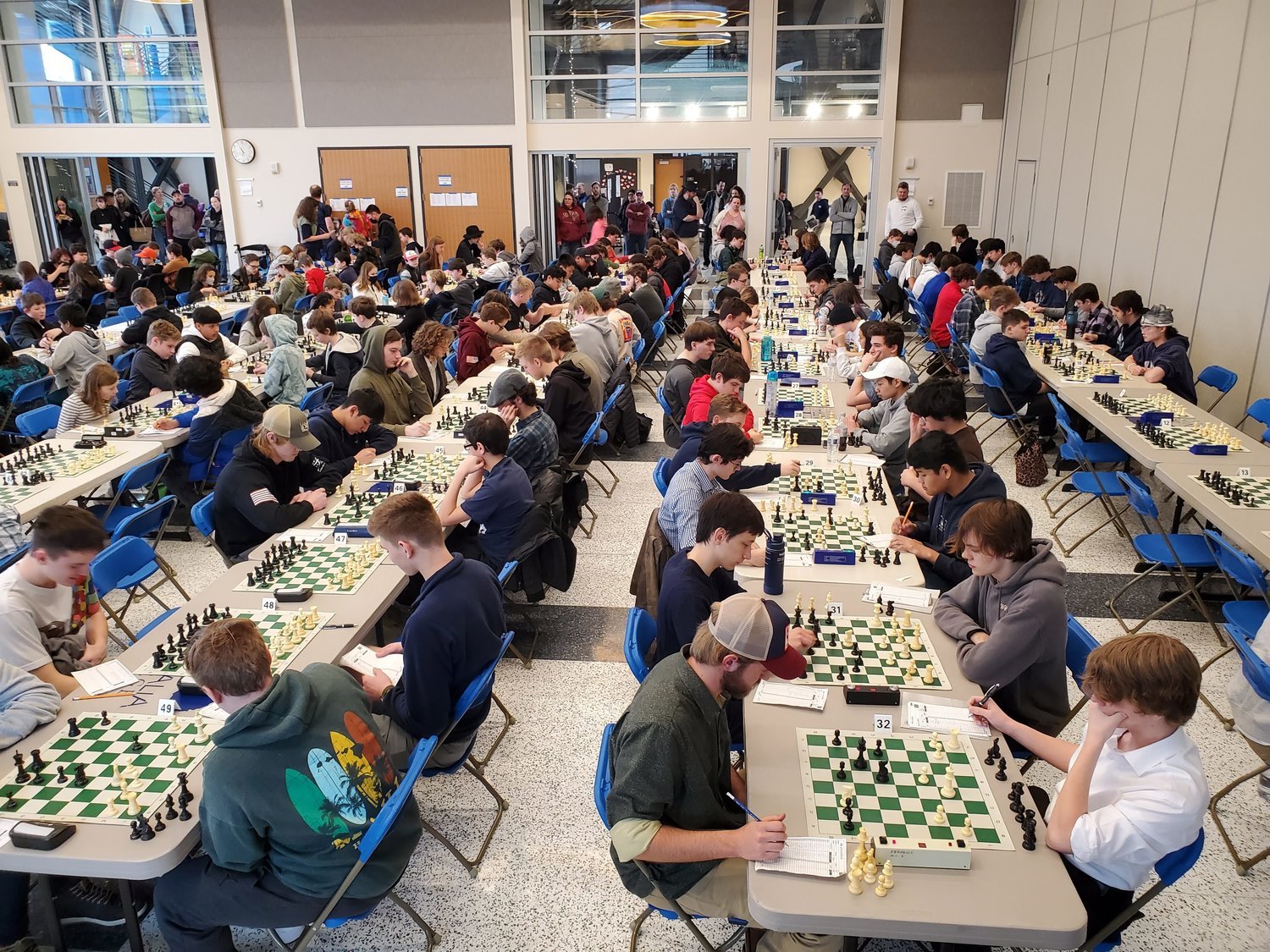To find local chess clubs. Start by checking community centers. Libraries. Or schools that often host chess programs. Websites like Meetup & Chess.com also list nearby clubs & events. Local chess federations or associations may provide resources & information on active clubs. Additionally. Consider visiting parks or cafés where informal chess games are played. Engaging with social media groups dedicated To chess in your area can lead To discovering vibrant local scenes & dedicated players eager To connect over The game. Finding a club that suits your level & interests can enhance your chess experience significantly.
Chess Clubs Near Me: Where to Play Chess Locally. Looking for local chess clubs? Discover nearby places To play. Meet fellow players, & improve your skills. Join The fun & start your chess journey today!
Chess Clubs Near Me: Where to Play Chess Locally
Finding Local Chess Clubs
Excitement often fills enthusiasts when searching for chess clubs nearby. Many options exist. Allowing individuals of varying skill levels to find a welcoming space. Local chess clubs not only provide a venue for engaging matches but also foster a sense of community among players.
In bustling cities. Smaller towns. And suburbs. Chess clubs may hide in unexpected locations. Libraries. Community centers. And even cafes often host clubs. Connecting with other players can reignite passion for this strategic game. Searching online yields a plethora of clubs that welcome newcomers and regulars alike.
For those eager to explore nearby options. Using search engines can uncover local chess clubs efficiently. Inputting terms related to chess can direct individuals straight to potential hotspots. A quick visit to Google allows one access to reviews. Schedules. And membership details.
Benefits of Joining a Chess Club
Joining a chess club comes with numerous advantages that elevate one’s game and overall experience. Social interactions with fellow players enhance enjoyment and provide opportunities for new friendships. Many clubs organize tournaments that can foster a competitive spirit and enable players to showcase their skills.
In addition. Regular playing sessions alongside diverse opponents help improve strategy and tactical understanding. Exposure to various playing styles sharpens critical thinking. A crucial aspect of chess. Over time. Members witness significant improvements in their gameplay. Allowing them to compete at higher levels.
Furthermore. Chess clubs often provide access to experienced players and coaches. Which can greatly accelerate learning. A mentor’s guidance can reveal hidden nuances within complex strategies. Enriching understanding of chess theory and practice. This type of support can prove invaluable. Especially for those embarking on their chess journey.
Types of Chess Clubs
Diverse types of chess clubs cater to different audiences. Some clubs focus on competitive play. Hosting regular tournaments and serious matches. These are perfect for players aiming for advanced skill levels and keen on testing their abilities against formidable opponents. Membership in such clubs often leads to exposure to highlevel chess. Greatly enhancing a player’s skill set.
On the other hand. Casual clubs welcome beginners and those looking for a friendly atmosphere. Here. Players can practice without pressure. Enabling them to enjoy recreational matches while honing their skills. Many local clubs prioritize creating an inclusive environment that supports learning and growth.
Hybrid clubs might blend both competitive and casual aspects. Allowing members to choose how they wish to engage. Such versatility appeals to a broad audience. Offering pathways for those looking to grow while participating in a communityoriented environment. Finding a club that aligns with your interests becomes crucial.
Features of Local Chess Clubs
- 🏆 Regular tournaments and events
- 📚 Access to learning resources
- 🤝 Networking opportunities with fellow players
- 🎓 Coaching from experienced members
- 📅 Flexible meeting schedules
- 🌐 Online play options
- 🛠️ Specialty workshops and educational sessions
How to Choose a Chess Club
Selecting an ideal chess club involves considering location. Atmosphere. And membership benefits. First. Consider proximity when looking for clubs; conveniently located venues make attendance manageable. Regular participation often leads to better practice and familiarity with fellow players.
Next. Evaluate the atmosphere of potential clubs. Some may emphasize competitive play. While others cultivate a more relaxed environment. A welcoming atmosphere can promote growth and enjoyment. While intense competitiveness may be offputting for some. Visiting clubs can provide insight into their dynamics.
Finally. Assess membership benefits offered by clubs. Some charge fees. While others remain free; knowing what level of financial commitment one is comfortable with can guide important decisions. Additional offerings. Such as coaching and tournaments. Should also factor into evaluations.
Online Resources for Chess Clubs
Several online resources assist players in discovering local chess clubs. Websites dedicated to chess often provide directories of clubs based on geographical locations. Utilizing these platforms can streamline efforts in finding suitable options in one’s area.
Social media also plays a vital role in connecting players with chess communities. Groups on platforms like Facebook provide spaces for enthusiasts to gather online. Share experiences. And discover clubs nearby. Engaging with these groups can yield recommendations from fellow players.
Additionally. Chess forums exist where players can seek guidance and advice regarding chess clubs. Engaging with these online communities can provide valuable insights into clubs’ reputations. Strengths. And weaknesses. This information can help streamline a decisionmaking process when choosing a local chess club.
Community Engagement through Chess Clubs
Chess clubs serve not only as venues for gameplay but also as platforms for community engagement. Organizing events such as chess workshops. Instructional sessions. Or casual meetups promotes interaction among players of diverse backgrounds. This fosters an environment where learning prevails.
Chiess clubs also often engage with schools. Encouraging younger generations to explore chess. Programs designed for youth often help nurture interest in chess. Fostering both social skills and critical thinking. These initiatives can significantly impact local communities by instilling values through game play.
Moreover. Hosting charity events provides opportunities for clubs to give back. Collaborating with local charities allows clubs to contribute positively while promoting chess simultaneously. This dual approach enhances community ties and emphasizes chess’s role in bringing people together.
Comparing Chess Clubs in Your Area
| Club Name | Location | Membership Fee | Competition Level | Special Events |
|---|---|---|---|---|
| 🏅 City Chess Club | Downtown | $25/month | Advanced | Weekly Tournaments |
| ☕ Café Checkmate | Uptown | Free | Casual | Monthly Meetups |
| 🧠 Brainiacs Chess Club | East Side | $10/month | Mixed | workshops & lectures |
Personal Experience with Local Chess Clubs
Participating in tournaments allowed me to challenge myself in ways I had never imagined. Competing against diverse styles broadened my horizons and showcased various strategies I hadn’t considered before. Valuable lessons learned within these matches often translated into improvements in my gameplay.
Overall. My experience reinforced the importance of community and camaraderie through chess. Whether exchanging ideas with friends or engaging in serious competitions. Each moment spent at these clubs significantly shaped my passion for this intellectual pastime.
For those seeking further insights into various sports and clubs. Visiting this resource might prove beneficial.
Looking for local chess clubs? Discover nearby places To play. Meet fellow players, & improve your skills. Join The fun & start your chess journey today!
| Feature | Chess Club A | Chess Club B | Chess Club C | Chess Club D |
|---|---|---|---|---|
| Location | 123 Main St. | 456 River Rd. | 789 Oak Ave. | 321 Pine Blvd. |
| Membership Fee | $20/month | $15/month | $25/year | $30/month |
| Open Hours | Mon-Fri 4PM-10PM | Tue-Sun 1PM-8PM | Wed-Sat 3PM-11PM | Daily 10AM-9PM |
| Beginner Programs | Yes | No | Yes | Yes |
| Advanced Tournaments | Monthly | Quarterly | Monthly | Bi-annual |
| Facilities | Full Café | Snack Bar | Library | Game Shop |
| Online Play | Yes | No | Yes | Upcoming |
| Coaching Availability | Yes | Yes | No | Yes |
| Age Groups Accepted | All Ages | Adults | All Ages | Children Only |
| Member Discounts | 10% | 5% | 15% | None |
| Event Hosting | Yes | Yes | No | Yes |
| Number of Active Members | 150 | 80 | 200 | 60 |
| Community Outreach | Regular Events | Seasonal | Occasional | None |
| Chess Equipment Provided | Yes | Limited | Yes | No |
| Website | www.chesscluba.com | www.chessclubb.com | www.chessclubc.com | www.chessclubd.com |
| Social Media Presence | Active on All Platforms | Facebook Only | Instagram & Twitter | None |
| Parking Availability | Street Parking | Parking Lot | Street Parking | Limited |
| Accessibility | Fully Accessible | Partially Accessible | Fully Accessible | Limited Access |
| Member Retention Rate | 90% | 75% | 85% | 60% |
| Rating (out of 5) | 4.8 | 4.0 | 4.5 | 3.5 |

What are local chess clubs?
Local chess clubs are community organizations where chess enthusiasts gather To play & improve their skills. Often hosting regular meetings. Tournaments, & events for players of all levels.
How can I find chess clubs near me?
You can find nearby chess clubs by searching online for local chess organizations. Checking community bulletin boards. Or visiting chess websites that list clubs by location.
Are chess clubs open To all skill levels?
Yes. Most chess clubs welcome players of all skill levels. From beginners To advanced players. Providing a friendly atmosphere for everyone To learn & compete.
Do I need To bring my own chess set?
While many clubs provide chess sets & boards. It’s always a good idea To bring your own if you have one. As it can be more comfortable To use your personal equipment.
Are there any fees To join a chess club?
Many chess clubs charge a nominal fee for membership. Which helps cover expenses. But some may offer free participation or trial periods for newcomers.
What activities are typically offered at chess clubs?
Activities at chess clubs can include casual play. Structured tournaments. Instructional sessions, & lectures from experienced players or coaches.
Can I attend a chess club without being a member?
Some clubs allow nonmembers To drop in & participate in events. While others may require membership for regular attendance. So it’s best To check with The specific club.
What ages are common in chess clubs?
Chess clubs often have players of all ages. From children To seniors. Creating a diverse environment where players can learn from one another.
Are there online options for playing chess locally?
Yes. Many local chess clubs also host online events & games. Allowing members To connect & compete remotely while still being part of The community.
How often do chess clubs meet?
Meeting frequency varies by club. With some meeting weekly. Biweekly. Or monthly. Providing different opportunities for members To engage & play chess.
Conclusion
Finding a local chess club is a great way To enjoy The game. Meet new friends, & improve your skills. Whether you’re a beginner or a seasoned player. There’s a spot for you in these welcoming communities. Don’t hesitate To reach out & check out clubs in your area; many offer casual games. Tournaments, & valuable lessons. So grab your chess board or just your enthusiasm, & dive into The world of local chess! You’ll be surprised at how much fun it can be & how many great people you’ll meet along The way. Happy playing!











